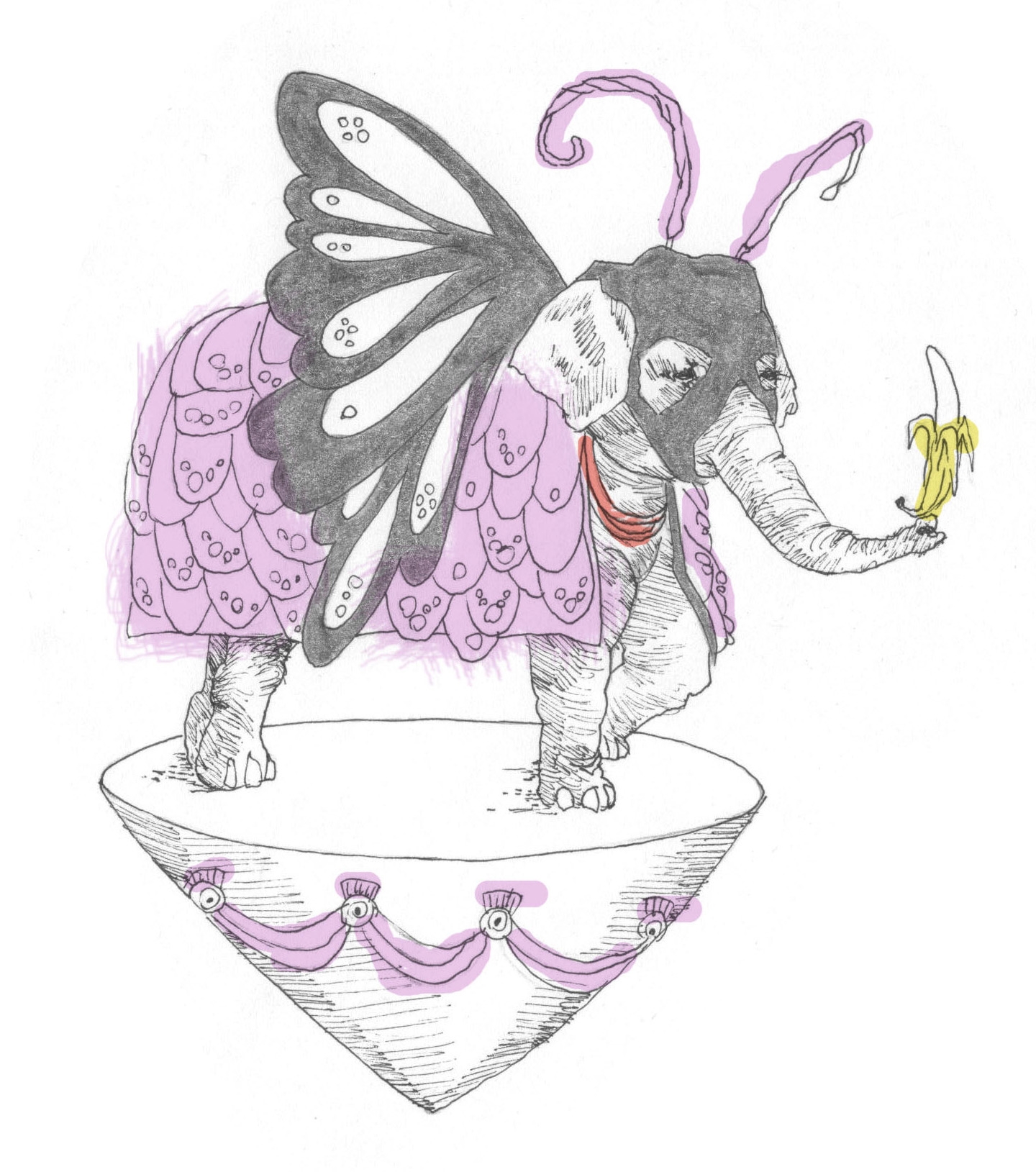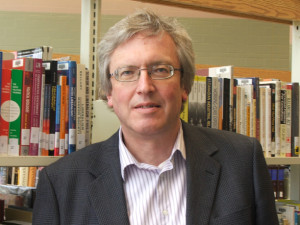Stefanie Freele: In your excellent SOS flash, Natasha minimizes his dream as mere “elephants and banana leaves” – but there is so much more to his vision. You’ve paired together two authentic characters with opposing goals. Where did this idea stem from?
Andrew Stancek: Thanks, Stefanie for the compliment and let me say it is a thrill being interviewed by you since I am such an admirer of your work.
My writing tends to be character-driven and sometimes I am blessed with a premise visiting me almost wholly-formed. In “Elephants and Banana Leaves,” I wanted a Tamil background and I saw a wise Tamil man, displaced in North America, under whose influence an idealistic young man goes in search of wisdom. But his young wife has no such wish. My first image of Natasha was of her wearing red stilettos. She is also associated with a lacy black bra and a red thong. Such characters produce fireworks, not a common journey.
SF: If you could spend time with an author, studying with him, who would it be?
AS: I had the great fortune of studying with Alistair MacLeod, whose novel No Great Mischief and short stories I return to time and again. But I also think it would be exhilarating and empowering to talk craft with Colum McCann and Ian McEwan.

SF: What have you read lately that you want the world to know about and read also?
AS: Almost all my reading these days is of writers whom I wish to emulate. I have been studying Robert Boswell’s Living To Be A Hundred. I keep rereading Chekhov and Kafka. I am about to reread Jennifer Egan’s A Visit from the Goon Squad which just blew me away when I first read it. William Trevor’s novels are always at my bedside. David Bezmozgis’s recent novel, The Free World, is a jewel. Ellen Gilchrist has a spectacular collection of interwoven stories called Nora Jane: A Life in Stories, which serves as a shining example of how to write a novel in stories. And since I talked earlier of my homeland, I must recommend a book about the Czech experience, written by a recently deceased friend, Josef Skvorecky, called The Bass Saxophone.
SF: In your bio, you mention seeing Russian tanks occupying your homeland. Can you tell more about that day? And, how the experience may have influenced your writing?
AS: Let me begin with a little bit of background. In 1968, in Czechoslovakia, a group of enlightened reformers tried to liberalize a rigid government and bring about a system “with a human face.” In August, the armies of five Warsaw Pact countries, led by the Soviet Union, occupied Czechoslovakia and overthrew the government of Alexander Dubcek. Faced with overwhelming power, the government advised its citizens to surrender without a fight.
Bratislava, my hometown, swarmed with hundreds of Russian tanks, driven by young men not much older than I was. Soldiers with machine guns patrolled around key buildings. Street signs disappeared overnight to confuse the invaders and make it more difficult to arrest the opposition. Pro-government, anti-Russian graffiti covered every blank space. Streets teemed with people. Panic, tears, shouting. Outside a downtown university building an overexuberant student was shot and his body was left on the steps for a few hours. The spot was transformed into a memorial with photos and flowers.
I turned thirteen on the first day of the occupation. I was bookish, idealistic, introverted. I
drank it all in. I had been sheltered and even as the events were unfolding, people had a sense that a world was ending. In the next six weeks it is estimated that 104,000 Czechs and Slovaks left the country for good. My family and I were among them. The occupation remains the turning point in my life. It took twenty-six years before I was able to go back for a visit. My writing is profoundly influenced by the events of that year, in obvious ways, such as being set in Bratislava, or less obviously in thematic preoccupations with dreams, flight, surrender, betrayal, retreat and loss of innocence.
SF: What a profound experience; it took 26 years for you to go back. What does recovery mean to you? What are you recovering from? Are you recovered?
AS: For me at least, I think it is impossible to be recovered. My childhood, adolescence, young adulthood were spent surrounded by dysfunction. I spoke already of the invasion of my country and the resultant relocation to another continent, culture, language. Melancholy, and depression are as familiar to me as breathing. But they are of course all fodder for stories. “Every experience you undergo, every pain, every dream is something you must write about,” is the advice a wise mentor gave me.
Stefanie Freele was born and raised in Wisconsin and currently lives in the Northwest US. Her short story collection, Feeding Strays released by Lost Horse Press was a finalist for both the Book of the Year Award and the 2010 Binghamton University John Gardner Fiction Book Award.Surrounded by Water, Stefanie’s second collection of short stories is now available from Press 53.


Pingback: Elephants and Banana Leaves | Rkvry Quarterly Literary Journal